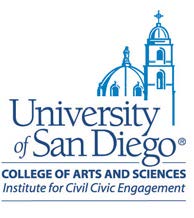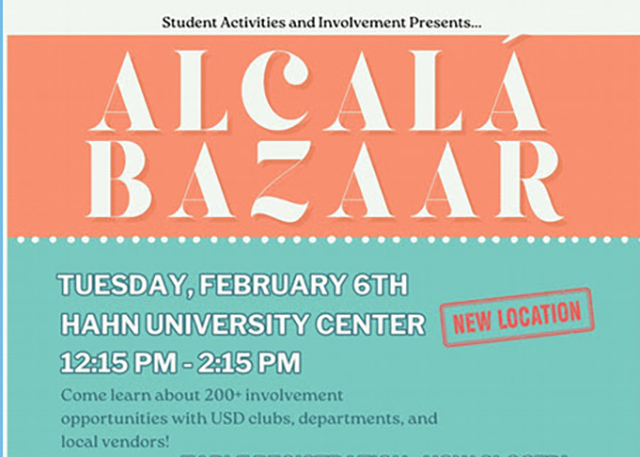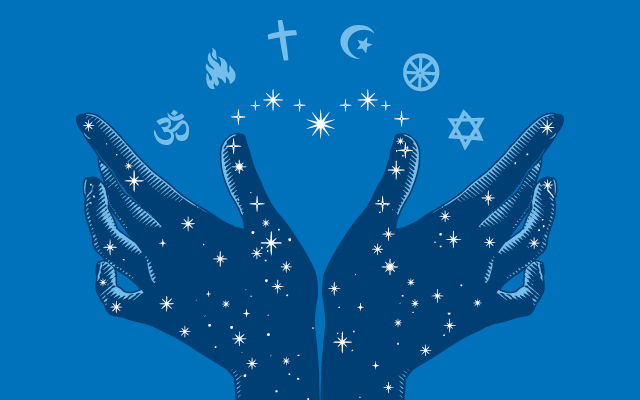Oct. 28 - Nov.1: Día de Muertos - Ancestral Tradition and Cultural Transformation Across Borders
The Humanities Center is hosting a week-long celebration of art, community and memory, October 28 to November 1.
Sponsored by the Humanities Center and curated by Antonieta Mercado, PhD, associate professor in USD’s Department of Communication Studies.
Political Skeletons: The Art and Afterlife of José Guadalupe Posada
Exhibition On View: October 28 to December 13
Humanities Center Gallery, Saints Tekakwitha and Serra Hall
Opening Reception: Monday, October 28 at 4 p.m.
Born in Mexico in 1852, legendary illustrator José Guadalupe Posada remains an iconic figure among artists and activists celebrated for his bitingly satirical prints. Regarded as the father of Mexican printmaking, Posada’s eye-catching engravings appeared on broadsides that skewered the ruling class while drawing on Mexico’s history and folklore. He became identified with the calavera, the skull or skeleton that humorously mocked earthly wealth and vanities.
After Posada’s death in 1913, his form of “art for the people” exerted a strong influence on socially conscious artists in Mexico and abroad. Today, people continue to pay homage to Posada in combining sly, subversive social commentary with graphic power and invention.
Lecture - Artistic Expression and the Materiality of Death
Monday, October 28 at 4:30 p.m.
This panel brings together artists who have worked different themes related to Day of the Dead as plastic expressions, from print arts to alebrijes and calaveras sculptures.
Moderator:
- Antonieta Mercado, PhD, associate professor in USD’s Department of Communication Studies
Panelists:
- Dania Elisai, visual artist — When Elisai learned she had cancer at 21, she started to create papier-mâché dolls and images related to the Day of the Dead as a way to celebrate life.
- Artemio Rodriguez, print artist and illustrator — He is the creator of political art in the style of José Guadalupe Posada and director of La Mano Gráfica in Pátzcuaro, Michoacán.
- Leonardo Linares, visual artist — He is the grandson of Don Pedro Linares who, more than 80 years ago, created alebrijes out of a dream. The Linares family has continued the work of creating these sculptures, often featuring fantastic hybrid creatures and skeletons.
***
Death as Social Criticism and Journalism
Tuesday, October 29 at 4 p.m.
Humanities Center, Saints Tekakwitha and Serra Hall
A discussion about the value of the Day of the Dead as a venue for grassroots expression and self-representation.
Moderator:
- Jillian Tullis, PhD, associate professor in USD’s Department of Communication Studies
Speakers:
- Regina Marchi, professor in the School of Communication at Rutgers University and author of Day of the Dead in the US
- David Avalos, MFA, professor at California State University San Marcos and political artist
- Alberto Pulido, PhD, professor in USD’s Department of Ethnic Studies and local community activist
***
Honoring the Ancestors: Conceptions of Death Among Native Americans in San Diego
Wednesday, October 30 at 4 p.m.
Humanities Center, Saints Tekakwitha and Serra Hall
This panel, moderated by Persephone Lewis, USD tribal liaison, brings together members of the local Kumeyaay and Luiseño tribal nations who discuss the importance of honoring their ancestors, as well as local traditions and practices that are particular to their communities.
***
The Philosophical Meaning of Death in the Civilizations of the Anahuac
Thursday, October 31 at 12 p.m.
Humanities Center, Saints Tekakwitha and Serra Hall
If there is no death, there is no life. Very few civilizations have incorporated rituals and reflections about death as the most-lively part of their daily cultures as those indigenous to our continent, where the origins of the modern Day of the Dead come from.
Introduction:
Brian R. Clack, PhD, A. Vassiliadis director of Humanities Center and professor in USD’s Department of Philosophy
Speakers:
Guillermo Marín, public intellectual — In Oaxaca, he has promoted the philosophical roots of indigenous culture in Mexico and abroad. His website, www.toltecayotl.org, has about 20 million visits.
Luz Rodríguez, artist — Through her art, she has contributed to the promotion of indigenous dances and poetry in her native Oaxaca.
***
Natalia Toledo, Zapotec Poetry Reading
Friday, November 1 at 12 p.m.
Student Life Pavilion Gallery
A renowned Zapotec poet and the current undersecretary of diversity and culture in Mexico´s Ministry of Culture, Toledo reads her poetry, which has been translated into many languages and has received the Nezahualcóyotl Award for Indigenous Literature.



